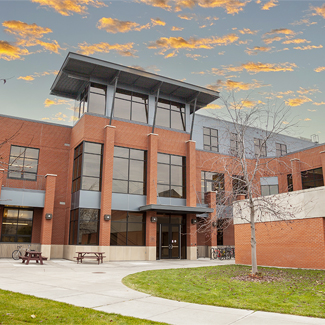China Summer Study Abroad
The Baucus Institute China Summer Study Abroad programs immerse students from universities and colleges across Montana with Chinese students in people-to-people diplomacy experiences. In the summer of 2024, we are planning two programs in China.
Both programs are open to any undergraduate or graduate student currently enrolled in higher education in Montana, who is in good academic standing and will continue to be enrolled in Fall 2024.
Applications for both programs are open now and due on February 12, 2024 (deadline was extended). Apply here.
Summer 2024 Program 1: CUSEF Cultural Exchange
This 10-day program is not for credit and focuses on cultural exchange. Applications are open now and due Monday, February 12, 2024 by midnight MST.
Dates:
June 9 - 17, 2024. Participants should plan to arrive on or before June 8 and depart on or after June 18.
Host:
The Max S. Baucus Institute and China-United States Exchange Foundation (CUSEF)
Destinations:
Beijing, Hong Kong, and Shanghai, China
Program:
Cultural exchange, not for academic credit in 2024.
Expenses:
Nearly all expenses for this trip are covered, including lodging, in-country travel, health insurance, breakfasts at hotels, and group meals. We are determining whether the flights to and from China will be partially covered. Participants will need to cover any personal purchases, such as souvenirs and snacks.
Requirements:
Be in good academic standing and continued university enrollment in Fall 2024. Students will need a passport that is valid through at least January 2025. Program is limited to 15 students, and previous China study abroad scholarship recipients (for years that we were unable to travel) have first priority.
Other participants in CUSEF's programs have included:
- Columbia University's School of International and Public Affairs (SIPA)
- Harvard Kennedy School
Other details: In the past, Ambassador Max Baucus and Mel Hanes have accompanied this trip. They plan to do so again in 2024. Activities include meetings with leadership at places such as the U.S. Embassy in Beijing and the Hong Kong Stock Exchange, as well as visits to cultural sites such as the Great Wall and the Forbidden City. Students also meet with Chinese university students to learn about the lived experience of their peers in China. When few Americans have in-person experience in China, we aim to create opportunities for our students to see for themselves to see what life there is like.
Summer 2024 Program 2: Environmental/Climate Emphasis
This program is NOT for credit. Applications are open now and due Monday, February 12 by midnight MST.
Dates:
June 30 to July 27, 2024. (Participants should plan to arrive in Beijing on or before June 29, and depart from Shanghai on or after July 28, 2024.)
Host:
Hangzhou Wanxiang Polytechnic and the Max S. Baucus Institute
Destinations:
Beijing, Hangzhou, and Shanghai
Program:
NOT for credit, but for cultural exchange and learning about environmental and climate issues.
To download the example PDF of scheduled activities, click here
Expenses:
Almost none. Nearly all expenses are covered, including flights to/from China, in-country travel, lodging, travel insurance, and meals. Participants will only need to cover personal expenses such as souvenir purchases.
Requirements:
Be in good academic standing and continued university enrollment in Fall 2024. Have a current passport that is valid through at least January 2025.
Other participants in Wanxiang's programs have included:
- Northwestern University's Buffett Institute for Global Affairs
- University of Chicago
Other details:
This program has an emphasis on learning about China's sustainability efforts, with lectures and site visits to power plants, EV battery manufacturers, and the Wanxiang Innova Smart City project. Students will also participate in several cultural courses, likely including tea ceremonies, martial arts, language classes, calligraphy, making incense art, and woodblock printing. Day trips usually include visits to a silk museum, the Xixi wetlands, a tea farm, and an evening canal cruise through Hangzhou. Lunches and dinners are group events, creating informal opportunities for American and Chinese students to learn about each other over shared meals.
